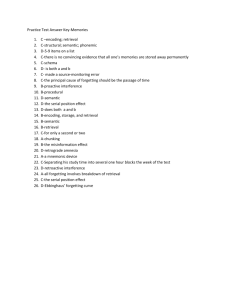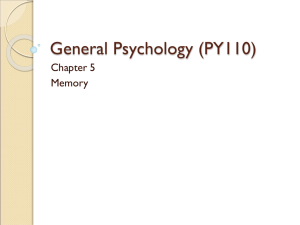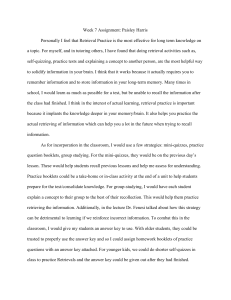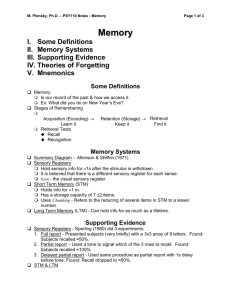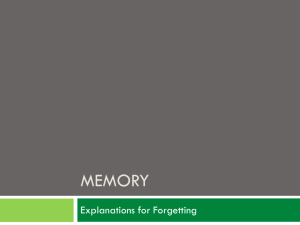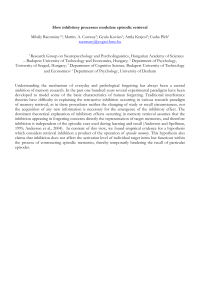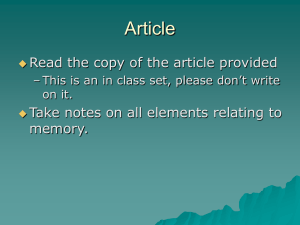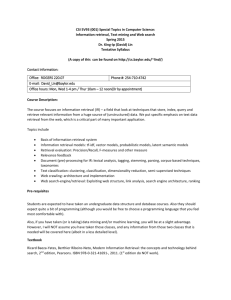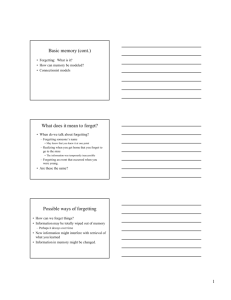Memory
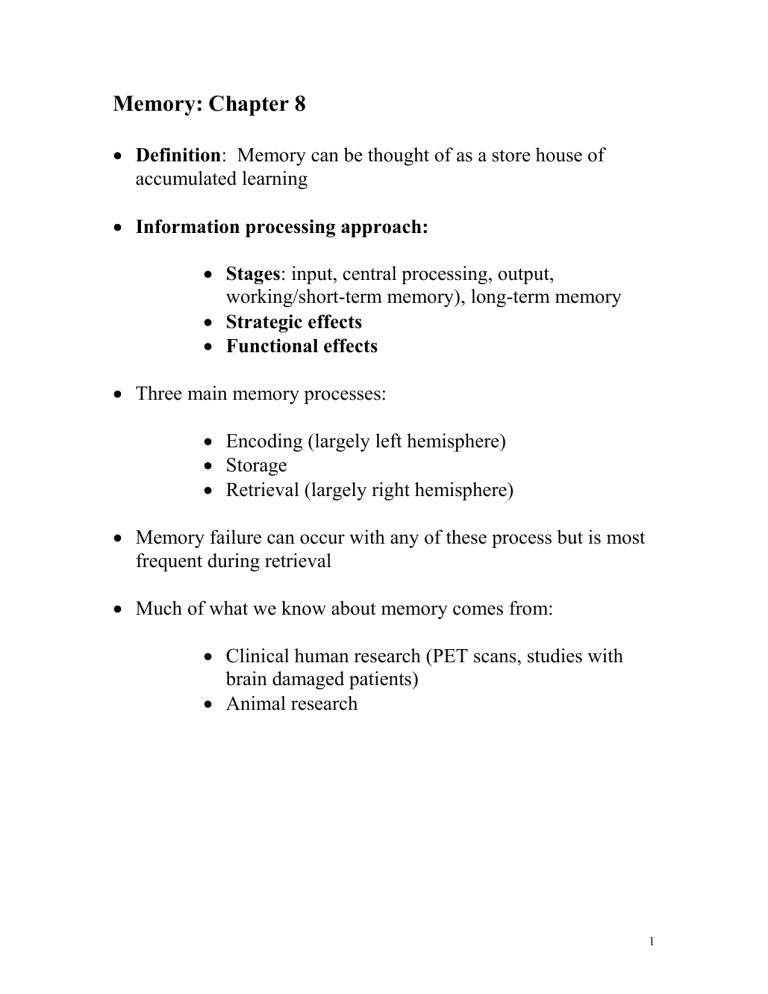
Memory: Chapter 8
Definition : Memory can be thought of as a store house of accumulated learning
Information processing approach:
Stages : input, central processing, output, working/short-term memory), long-term memory
Strategic effects
Functional effects
Three main memory processes:
Encoding (largely left hemisphere)
Storage
Retrieval (largely right hemisphere)
Memory failure can occur with any of these process but is most frequent during retrieval
Much of what we know about memory comes from:
Clinical human research (PET scans, studies with brain damaged patients)
Animal research
1
Memory systems
Sensory memory:
Representation : direct e.g., visual – icon; auditory - echoic representation
Organization : no particular organization – order sensed
Duration : visual lasts about 1 second, auditory about 10 seconds
Capacity : large
Retrieval : examination of information presented in its original form
Causes of forgetting : fading of memory traces
Working memory: attention, consciousness and short-term memory
Short-term memory:
Representation : acoustic and visual
Organization : no particular organization – if information attended to stored in order of occurrence
Duration : up to 20 seconds without rehearsal
Capacity : seven chunks, plus or minus 2 (Ebbinghaus 1885)
Retrieval : serial exhaustive search (Sternberg - 40 ms per item)
Causes of forgetting : decay, displacement, interference
2
Long-term memory:
Representation : semantically or through imagery (eidetic – photographic memory more common with children)
Organization : declarative or explicit and implicit or procedural
declarative: logical frameworks e.g., hierarchies and categories
Duration : possibly a lifetime
Capacity : large, possibly unlimited
Retrieval : organized search with retrieval cues
Causes of forgetting : interference, decay, retrieval failure
Serial position curve:
Immediate free recall
Immediate serial recall
Delayed recall
Consolidation:
ECT
Proactive and retroactive interference:
Environment/drug effects:
Mood and memory:
3
Memory strategies
Context:
Create visual scenes & associations
Relate material to information you know, also simple associations of lists with numbers (e.g., grocery list)
Mnemonics:
Greek for memory aid
Acronyms (HOMES)
Stories
Method of loci
Hierarchical organization:
General memory improvement:
Study repeatedly to boost long-term recall
Spend more time rehearsing or actively thinking about the material
Make the material personally meaningful
Use mnemonics for lists of unfamiliar items
Refresh your memory by activating retrieval cues (mentally recreate the situation in which the material was learned)
Recall information when it is fresh before there is the potential for interference from other material
Test your own knowledge both to rehearse it and to help determine what you do not yet know
4
5
